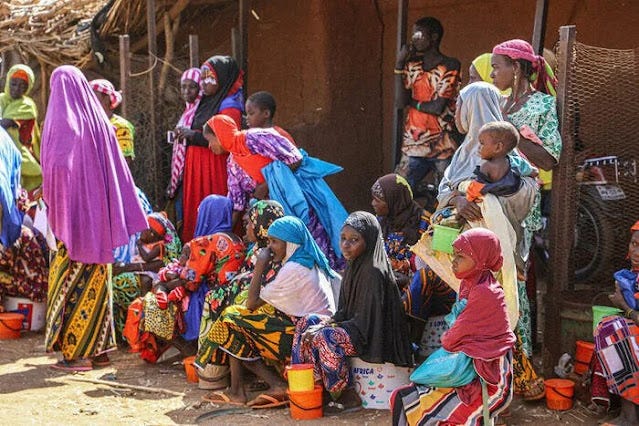NUTRITION CRISIS LOOMS OVER NIGER’S CHILDREN AMID BORDER CLOSURES AND POLITICAL TURMOIL
Unprecedented Political Turmoil and Border Closures Exacerbate the Nutritional Crisis, Leaving Vulnerable Children in Peril and Humanitarian Aid Stranded
In the wake of extensive border closures due to ongoing political unrest in Niger, over 90,000 children under five, residing in the crisis-riddled regions, are experiencing a detrimental scarcity of specialized nutritional foods, which are essential to thwarting the progression of their condition from moderate to severe malnutrition. The United Nations World Food Programme (WFP) and other humanitarian entities struggle to import necessary nutritional products into Niger, elevating concerns over a prospective large-scale nutritional crisis.
The situation is pressing, and unless expedited solutions are instituted, the number of affected children could potentially escalate to 160,000 by October 2023. “To sidestep a severe nutritional crisis, supplies must reach the country, failing which, we might witness an outbreak of serious infections and a surge in preventable deaths,” articulates Jean-Noel Gentile, the Country Director and Representative of WFP in Niger.
In-Depth Analysis: Context and Impact
The prevailing political instability in Niger, coupled with subsequent border closures, has resulted in the blockade of over 9,300 mt of essential WFP cargo, including specialized foods for malnutrition treatment and prevention, bound for Niger and Burkina Faso. The obstructed supply lines have forced WFP to halt supplementary feeding for approximately 90,000 moderately malnourished children since early September in Tahoua, Maradi, and Zinder.
This interruption is feared to aggravate the already grim nutritional landscape in a nation where vulnerable households continuously grapple with accessing nutritious food due to seasonal deficits, inflation in food prices, and diminished purchasing power, particularly during lean and pre-harvest seasons. Moreover, recent analyses by WFP and its partners report a substantial 21% hike in the average prices of staples like rice and sorghum in the aftermath of the political turmoil, further straining the resources of susceptible families.
Historical and Current Nutritional Landscape
Even before the political crisis, the nutrition scenario in Niger was alarming with approximately 3.3 million inhabitants, constituting 13% of the population, facing acute hunger—the second-highest level recorded since 2012. Furthermore, every second child under five is afflicted by some form of malnutrition, with regions like northern Tahoua, northern Tillabéry, and certain municipalities in the Dosso Region being particularly affected.
According to Niger’s national statistics institute, malnutrition is implicated in half of the deaths among children under five, representing a substantial economic burden with losses approximating 289 billion CFA francs ($539 million USD) annually—equivalent to over 7% of the country's GDP.
WFP's Role and Future Outlook
The WFP remains at the forefront of battling malnutrition, extending supplementary feeding to moderately malnourished children, expectant women, and lactating mothers and fostering community nutritional awareness and education. In 2023, WFP’s initiatives aimed to extend nutritional aid to 750,000 children—half of the anticipated cases of moderate acute malnutrition in Niger. Up until now, around 62% of these children have received aid since January.
Gentile emphasizes the criticality of sustained humanitarian access to prevent severe malnutrition, childhood diseases, and fatalities and to ensure that children, pregnant women, and breastfeeding mothers have consistent access to essential food and nutritional assistance.
The situation necessitates immediate international attention and action to ensure the secure and swift transport of humanitarian aid and to mitigate the escalating nutritional crisis affecting the most vulnerable population segments in Niger.
Source: Thousands of children in Niger at risk of severe nutritional crisis as border closures leave trucks stranded - Niger | ReliefWeb. (2023, September 21). Reliefweb.int. https://reliefweb.int/report/niger/thousands-children-niger-risk-severe-nutritional-crisis-border-closures-leave-trucks-stranded



